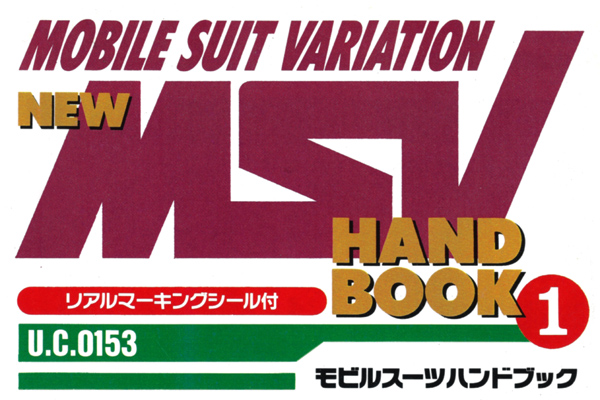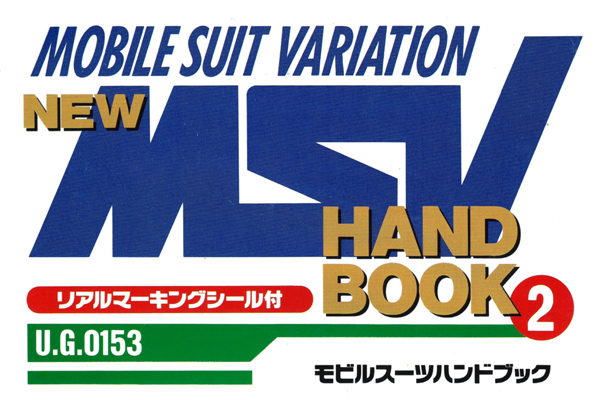OHKOUCHI INTERVIEW NOTES
When this issue went on sale, episode 9 had already aired. So the interviewer says fans were probably surprised to learn that an unexpected development happened in the show: it went from Gundam at school to a Gundam Corporation.
Ohkouchi gives a brief overview of his involvement with the project (standard explanation I’ve outlined before).
Again mentions how what he was already working on was completely different from what Director Kobayashi came up with (school setting).
Again credits the producer and young production staff with coming up with school-related ideas for the duels.
He didn’t specifically ask Kobayashi why there was a sudden shift but felt that it could turn out to be interesting with the staff so eager about the school idea.
When asked whether the old script was used for the PROLOGUE, he says it was completely unrelated, and that project was different.
In a sense, the rejection of the first episode script was a great exercise for them to create a story together.
The old project was more like Gundam than it is now. It was a project with a strong war theme.
When it’s brought up that Mogumo tried not to be conscious of Gundam-like characters when designing and asked whether it was the same for him, he says it’s best to go in a different direction with a TV series so the work is more standalone than it is Gundam.
With the school as the setting, the world was put together with everyone’s ideas, but there was still no Miorine.
Suletta’s counterpart wasn’t at the school but in the corporate world.
So, there was a corporate element from the beginning.
It’s emphasized that it’s not a normal school (as evident with duels), so it’s a way to showcase company MS.
When trying to depict adult society outside of school, school and war weren’t quite the right combo.
First Gundam was easier to showcase war because they weren’t that far removed from it, but there was still a lingering scent in the minds of the creators, society, and viewers.
Nowadays, that concept is so distant it’s hard to find common ground.
But, the corporate angle is easy to understand. You can imagine working for a company, going to meetings, getting harassed, etc. It’s more familiar to the viewer.
The concept of “a girl from Mercury riding a Gundam comes to Earth” remained even after the rejected first plot.
He mentions the overlap between himself and Suletta: first time in a big city, first time living alone, trouble talking to girls in class.
While it’s not a one-to-one type of thing, he did put a little bit of those initial feelings he had into things.
Yes, some of it is way more cartoonish, but that’s because it’s an anime.
It’s still not that far off the mark, though. Says it’s certainly more identifiable than confronting the Zeon after your parents are killed.
When talking about how Suletta interacts with her mother, Ohkouchi says that everyone has a different attitude when they’re talking with their parents versus when they’re away from home.
It’s rare that people are the same (such as Suletta).
While Suletta came off as a total badass in the first three episodes, during her training in ep 4, she’s shown to have a more vulnerable side to her.
Ohkouchi originally had a totally different, albeit more fun and lively idea in mind for that episode, but instead of moving the story forward, he decided to showcase the type of person she is.
Despite her trademark phrase, she’s by no means a strong-willed woman (aka Iron Lady).
She inspires herself, pushing herself to do her best.
Just because she’s an anime character doesn’t mean she is always frightened and whatnot.
Portraying what goes on inside her head makes the audience understand and like her even more.
Miorine had been a loner for quite a while, but she underwent a drastic change after meeting Suletta.
It seems that Miorine’s growth and change is bigger than Suletta, but Ohkouchi says that by ep 9 it may seem that way, but it’s a story for two people.
He feels that both characters will change, although at different speeds and stages of growth.
In that vein, Guel and Chuchu have both changed, as will the kids at the school.
They’re at that age, and they’ll be exposed to a world they’ve never known, so they’ll have to change.
When asked if it was his idea to make Miorine’s room messy, he says no, he didn’t pen that note in the script.
He thinks it was the director’s idea but says that it was an interesting aspect of the group effort to add their own quirks to the finished product.
When talking about zingers, when Miorine says “dabusuta kuso oyaji!” (“You hypocritical loser of a father!”), apparently the dabusuta (lit. double standard) part isn’t well known among his generation, which was strange to him.
The Romeo and Juliet line probably shouldn’t be read into and said that it means nothing more than what you heard.
Says Kobayashi is aware of Shakesperean motifs, hence why some of the “cursing” (more like bad-mouthing) is more highbrow for characters like Miorine.
The hypocritical and Romeo and Juliet lines weren’t penned with the intention of making them great lines, just ones that are typical for her.
He wanted them to be memorable.
I hesitate to say foil, but something in the same vein as Suletta’s pep talk.
He gave Suletta’s line a lot of thought, too. Something simple to show the mentality of the character, but also what kind of philosophy/outlook they have on life.
Cites Code Geass’ “Only those who are prepared to be killed should be allowed to kill!” as an example
The interviewer says that it’s interesting to note how her line doesn’t deny running away, to which Ohkouchi says that during the Showa era, it might’ve been “dont run away!”
But today, it’s not necessarily wrong to run away, just that her line is sorta true: moving forward gains you two, running away still give you one thing.
He did struggle coming up with something to encompass Suletta’s emotions but also something modern for the work.
There’s an interesting dynamic between Miorine and Suletta. You have a sort of wizard and warrior. In a sense, the brain and brawn.
Ohkouchi says it’s a standard dynamic duo, they’re not doing anything unusual, just making it more simplistic and orthodox way.
Their relationship is that of “buddies” at the moment, or as Ohkouchi says, they’re just about to become buddies.
With the two stages (school and corporate), they each have to have their own roles, or there won’t be a balance.
When asked about the fiance aspect, he says it was necessary to tie Miorine into the main storyline.
She could’ve been a pilot, but that would’ve conflicted with Suletta’s role.
So, she became a trophy.
When asked whether it’s a bold move for the main character that’s a girl to win a duel for a bride, he says that it _IS_ the future, so he felt there’d be more diversity in values than now, though he didn’t intend for it to be so drastic.
When Miorine mentions same-sex marriage as being normal, Suletta is surprised, which indicates a sort of cultural difference.
Ohkouchi agrees, saying that while the show depicts the future, it might be caught off guard by the fact that it’s commonplace.
Suletta embodies that hangup as confusion. She’s representing the audience with her “Huh?!” moment.
He tried not to make the characters’ emotions distant, things like not getting along with their parents, maybe liking a girl, being nervous about their first class, etc.
“Family” is a focus in the work too. Ohkouchi says it’s an easy subject to understand, but it’s not the only aspect.
There’s also love, the corpo world, friendship, but also breaking down (aka analysis), conflict, discrimination, etc.
The discrimination between Earthian and Spacian starts as an extension of the school caste to create an entry point.
When asked about Guel, he says he didn’t expect people to love him so much.
As for the three families, he can’t comment much on Shaddiq, but says Elan is the first love for Suletta, Guel is the first enemy.
Emphasizes that it’d be a waste to have a character like that just tossed away after the first ep, so he’ll be involved later.
After ep 6’s revelation with Elan, many were disturbed/uneasy, and so the joke of “well, it’s Ohkouchi, so…” started.
Laughing, Ohkouchi says that not ALL of his works are like that, though they do have to depict things that aren’t all fun.
He says that both the school, corpo, and adult lines will gradually come together.
The school aspect won’t disappear entirely.
The producer asked him to write the PROLOGUE to be separate from the story (rather than between ep 8 and 9)
He also didn’t see himself writing the novel either.
After he was asked to write it, he felt that it’d be more interesting to watch the show if you included it.
He’s quite happy seeing the reaction from fans online regarding the show.
No one knows what’s going to happen next, but everyone sharing their thoughts, predictions, videos, etc, is one of the few advantages of creating a new show.




